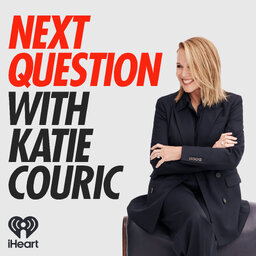The midterm elections are coming up on November 6, 2018, and there are lots of close races to watch at the federal, state, and local levels. Clare Malone from FiveThirtyEight joins Katie and Brian to highlight some of the most interesting contests: Cruz v. O’Rourke for Texas senator, DeSantis v. Gillum for Florida governor, Abrams v. Kemp for Georgia governor, and more. Clare also breaks down how recent events might affect the elections. Then Katie and Brian talk with Michael Lewis—author of The Blind Side, Moneyball, and The Big Short—about his newest book, The Fifth Risk. Michael spent months investigating the decay of the federal government under the Trump administration and why that could be dangerous for the country.
Learn more about your ad-choices at https://www.iheartpodcastnetwork.com
 Next Question with Katie Couric
Next Question with Katie Couric


